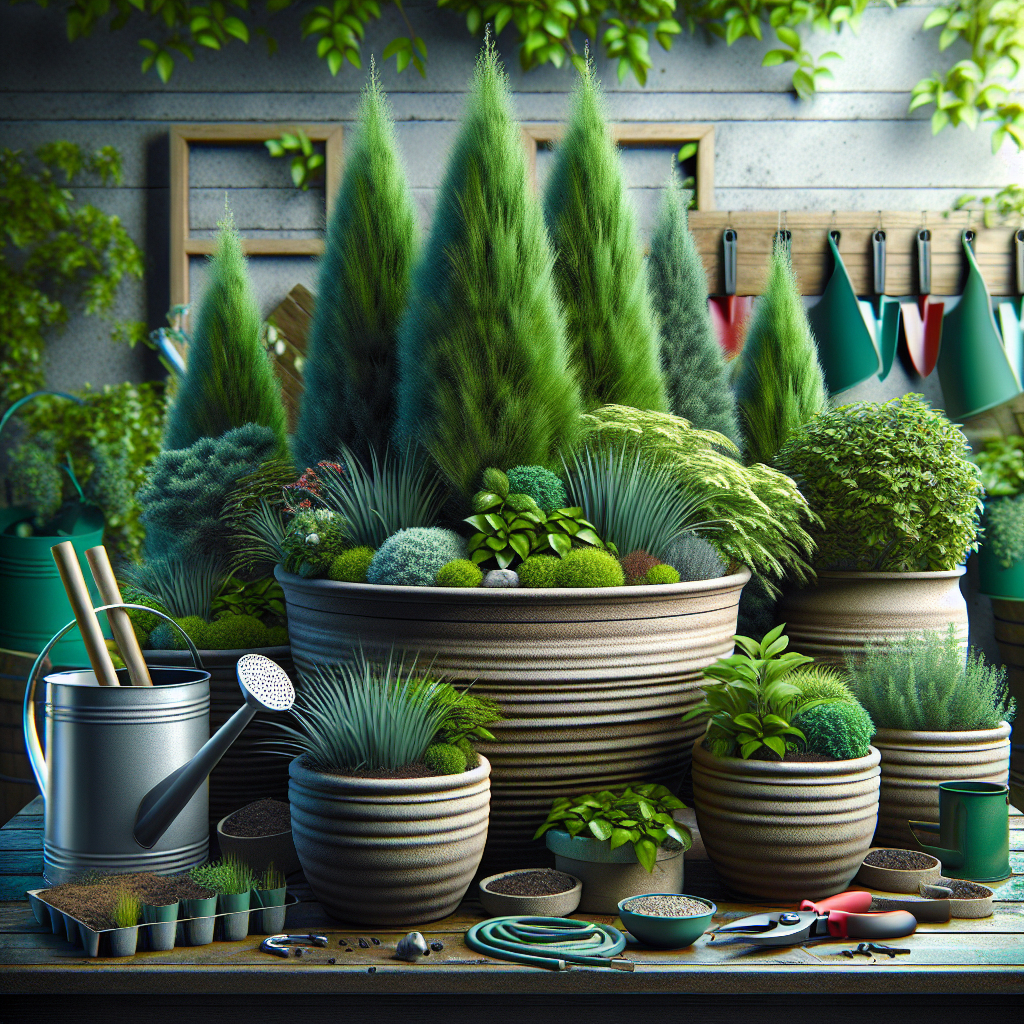Table of Contents
When it comes to creating a lush and vibrant container garden, mastering the growth of juniper plants in pots can be a game-changer. Junipers are versatile and hardy evergreen shrubs that can bring year-round beauty to your outdoor space. With the right care and attention, you can enjoy a verdant container garden filled with these stunning plants.
Whether you’re a seasoned gardener looking to expand your green thumb skills or a beginner eager to try your hand at container gardening, this article will provide you with valuable tips on how to successfully grow junipers in pots. From choosing the right container and soil mix to proper watering and pruning techniques, you’ll learn everything you need to know to create a thriving juniper-filled oasis on your patio or balcony.
Choosing the Right Container
One of the most important factors in successfully growing junipers in pots is choosing the right container. When selecting a pot for your junipers, opt for one that is large enough to accommodate the plant’s roots and allow for proper drainage. A container that is at least 12-16 inches in diameter and depth should provide enough space for most juniper varieties.
Selecting the Ideal Soil Mix
The soil mix you choose for your junipers can greatly impact their growth and overall health. Junipers thrive in well-draining soil that is slightly acidic. A good quality potting mix specifically designed for container gardening is a great choice for growing junipers in pots. You can also add some sand or perlite to improve drainage and prevent root rot.
Providing Adequate Sunlight
Junipers are sun-loving plants that require full sunlight to thrive. When planting them in pots, make sure to place your containers in a sunny location where they will receive at least 6-8 hours of direct sunlight each day. If you’re growing junipers indoors, place them near a south-facing window where they can soak up the sun’s rays.
Watering Your Juniper Plants
Proper watering is crucial for the health of your juniper plants. While it’s important not to overwater them, it’s equally important not to let them dry out completely. Check the moisture level of the soil regularly by sticking your finger into the top inch or two of soil. Water your junipers when the top inch feels dry, but be sure not to let them sit in waterlogged soil as this can lead to root rot.
Feeding Your Juniper Plants
To keep your juniper plants healthy and thriving, it’s essential to feed them regularly with a balanced fertilizer formulated for evergreen shrubs. During the growing season (spring through fall), feed your junipers every 4-6 weeks according to the manufacturer’s instructions. Avoid over-fertilizing as this can cause nutrient imbalances and harm your plants.
Pruning and Shaping Your Juniper Plants
Regular pruning is important for maintaining the shape and size of your juniper plants. Use sharp pruning shears to trim back any overgrown or dead branches, making sure not to cut into any green foliage as this can damage the plant. You can also prune your junipers into desired shapes like cones or spirals for added visual interest.
Pest Control
Keep an eye out for common pests that may affect your juniper plants such as spider mites, scale insects, or bagworms. If you notice any signs of pest infestation like webbing or yellowing leaves, treat your plants promptly with insecticidal soap or neem oil spray. Regularly inspecting your junipers will help prevent serious pest problems from developing.
Frequently Asked Questions (FAQ)
- Can I grow different types of juniper together in one pot?
It’s best not to plant different types of junipers together in one pot as they may have different watering or sunlight requirements which could lead to one variety suffering from stress or malnutrition. - How often should I repot my Juniper plant?
Juniper plants generally need repotting every 3-4 years depending on their growth rate and root development. Monitor their root system regularly by gently pulling them out of their pot if necessary. - Can I use regular garden soil for my Juniper plant?
It’s best not to use regular garden soil as it may not provide adequate drainage for potted plants like Junipers which prefer well-draining soil mixes specifically formulated for container gardening.
With these tips on mastering the growth of Junipers in pots, you’ll be well on your way towards creating a stunning container garden filled with lush greenery all year round!













